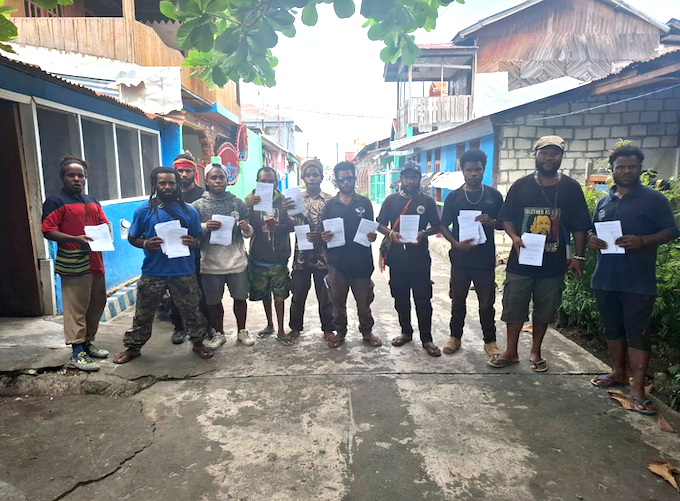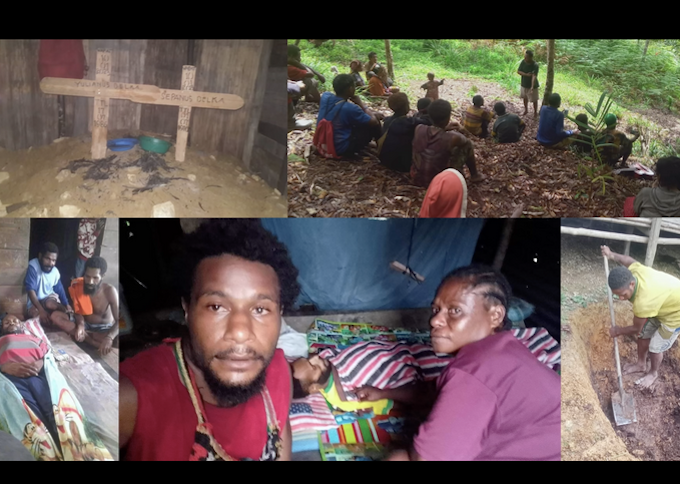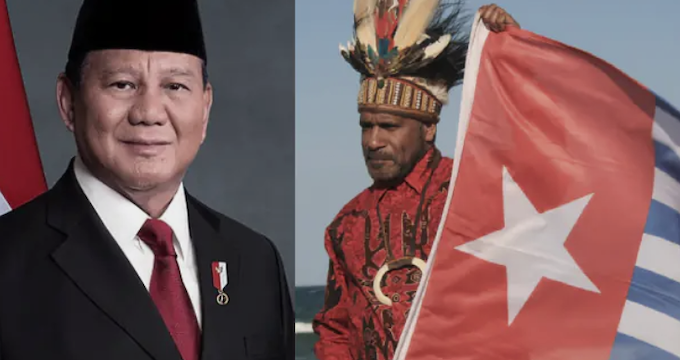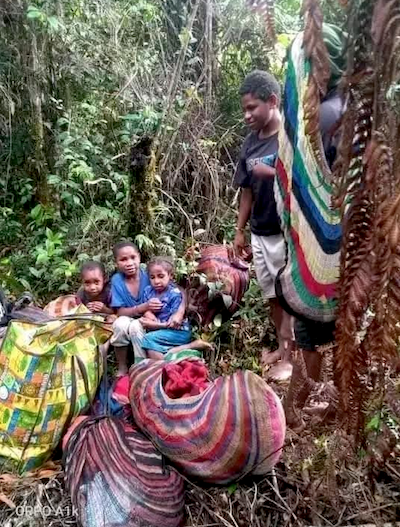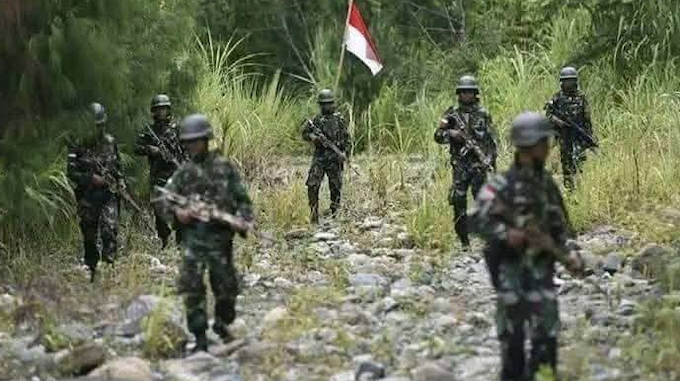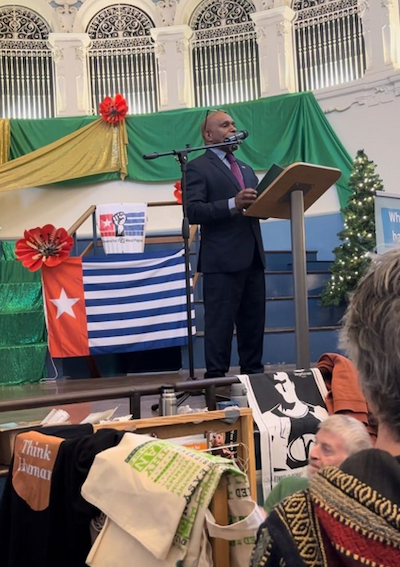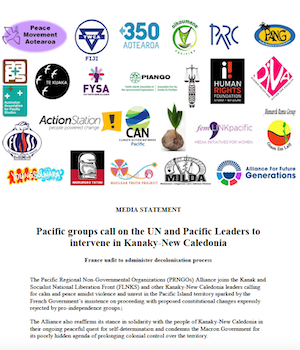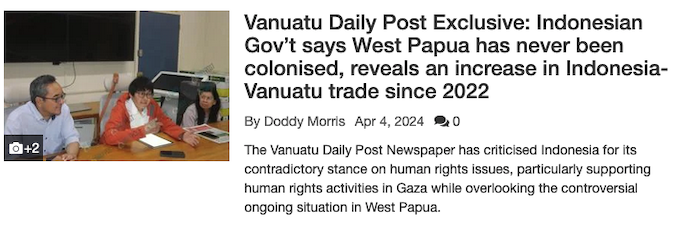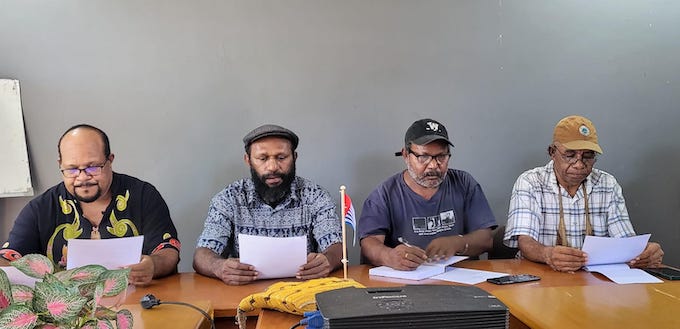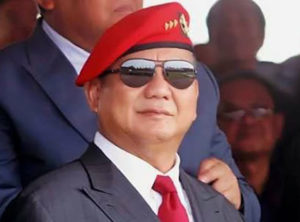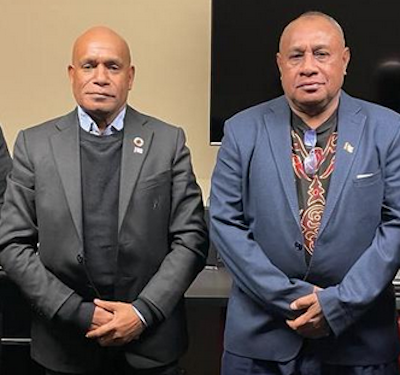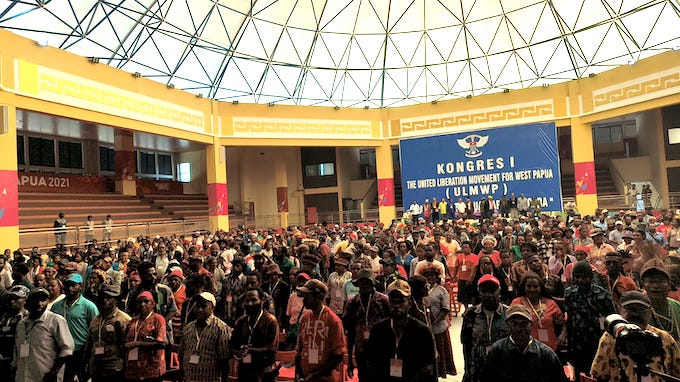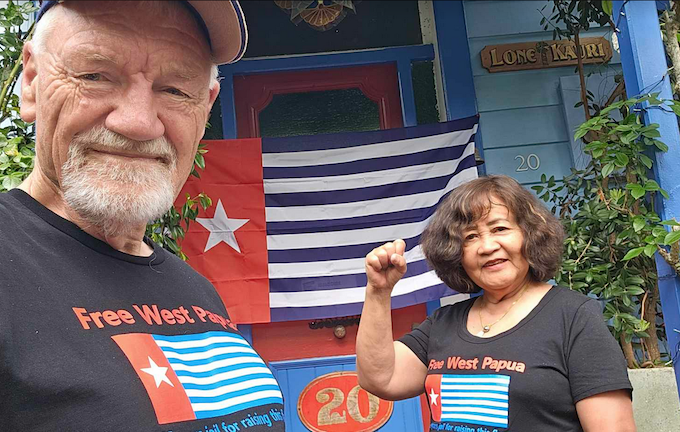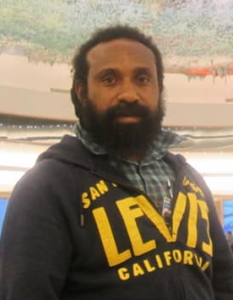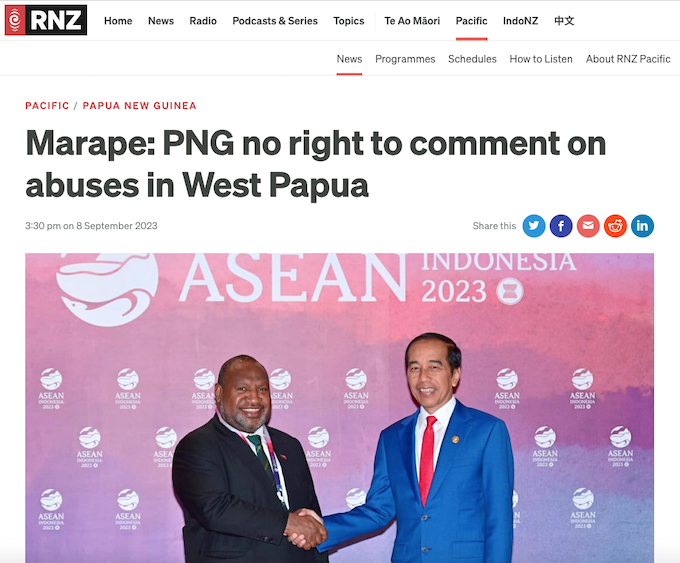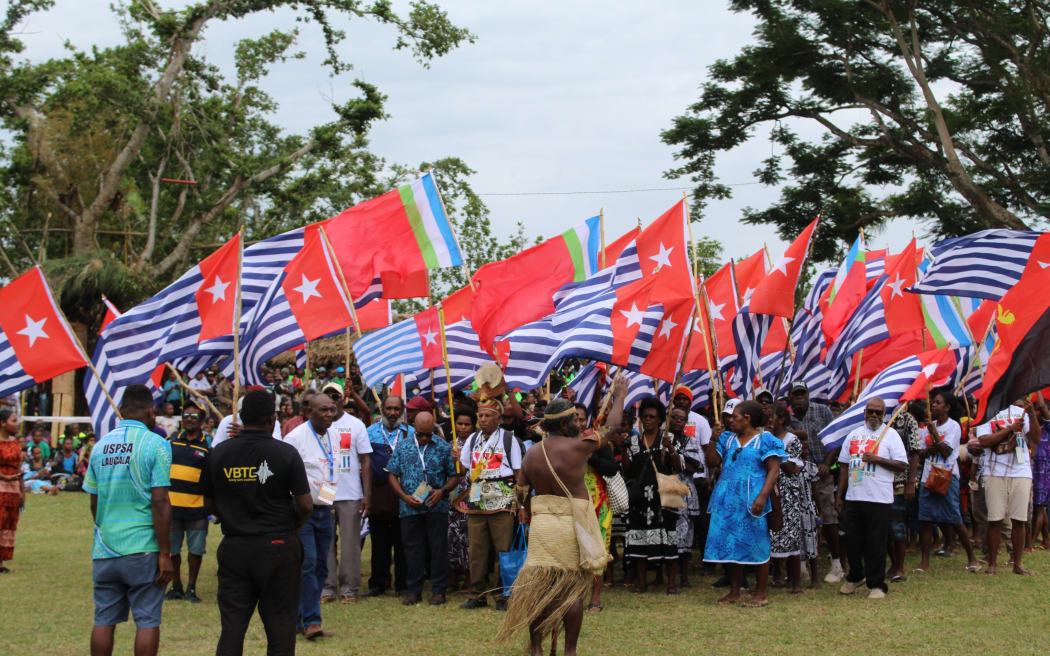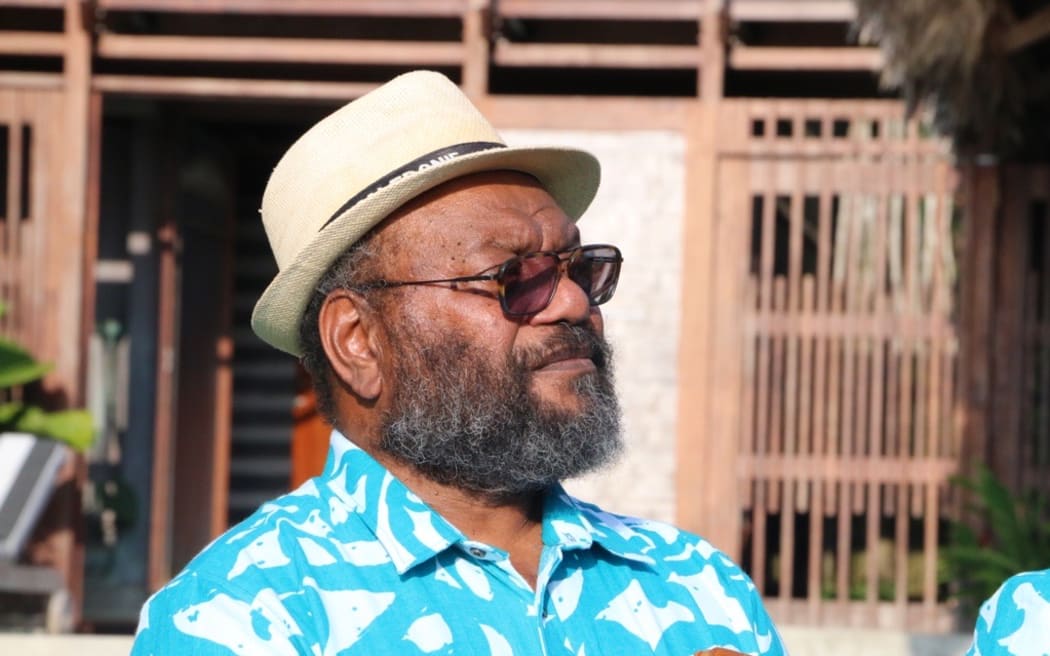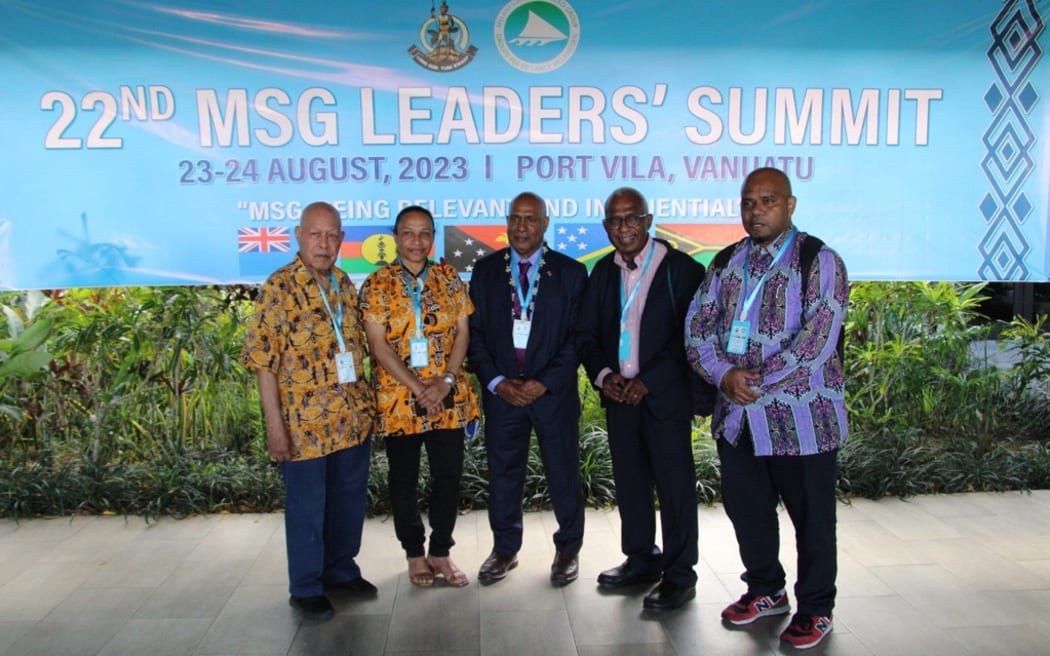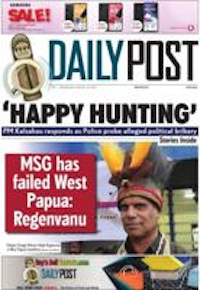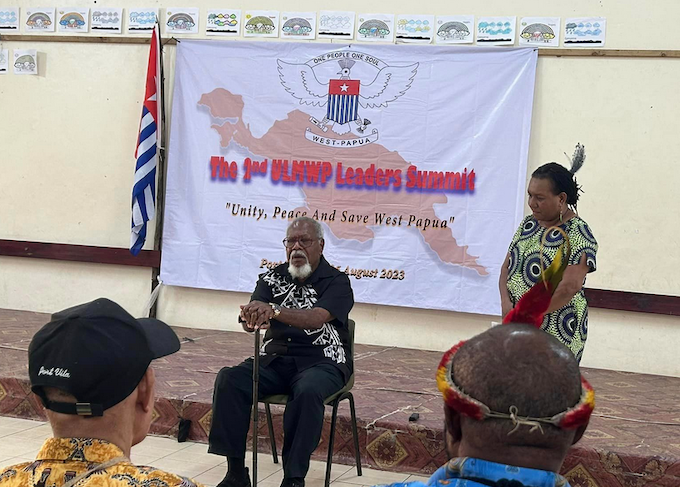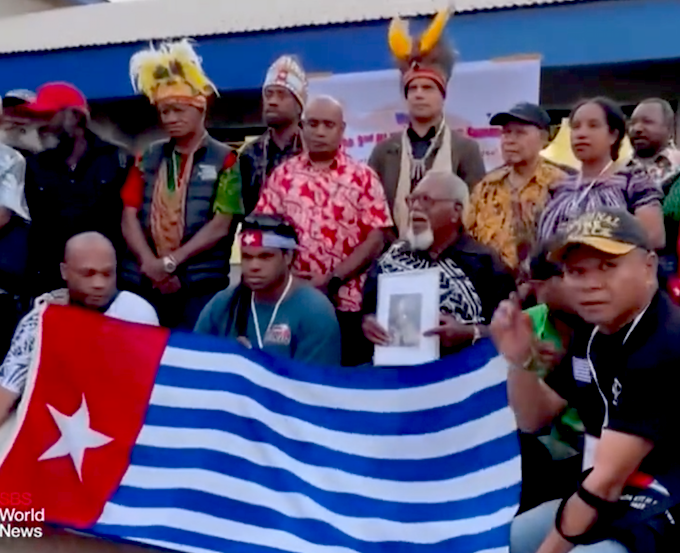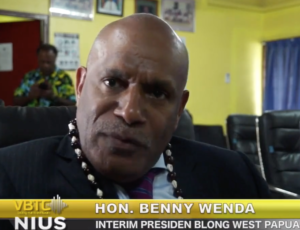An Australian academic has lit the fuse of diplomatic fury by publicly criticising Indonesia’s brutal response to the Papuan independence movement, a sensitive topic for governments of both countries. Duncan Graham reports from Indonesia on the silent war to the north.
ANALYSIS: By Duncan Graham
An Australian academic is risking an eruption of diplomatic fury by publicly criticising Indonesia’s brutal response to the Papuan independence movement, a hypersensitive topic for the governments of both countries.
Queensland historian Dr Greg Poulgrain last month told a Jakarta seminar that the Indonesian government’s approach “has long been top-heavy, bureaucratic, clumsy and self-serving.
“The military arrived in 1962 and 60 years later they’re still there in strength . . . more troops there now than ever before.
“The NGO Kontras declared that 734 Papuans were killed in 2022. That’s two-and-a-half times the number of Palestinians killed by the Israeli army last year. And from (the Highland province) Nduga there were 60,000 refugees.”
His comments were made just as the West Papua independence movement failed to get Pacific Islands’ backing at a stormy meeting of the Melanesian Spearhead Group (MSG) in Vanuatu with an Indonesian delegation walk-out.
The bid was thwarted by an alleged “corrupt alliance” of member states apparently after pressure from Indonesia which is funding Vanuatu airport repairs (including the VIP lounge) worth A$1.47 million. More of this later.
A report of the Jakarta seminar, organised by the government research agency Baden Riset dan Inovasi Nasional (BRIN), was published in Indonesia’s leading newspaper Kompas. It ran to 830 words but never mentioned Dr Poulgrain or his comments, although he was the invited international guest speaker.
Australian government stays hush
An estimated 500,000 indigenous Papuans are alleged to have died in the past 50 years through Indonesian military action. But the Australian government stays hush.
Before she became Foreign Minister, Senator Penny Wong, wrote that Labor was distressed by “human rights violations” in West Papua. However, there is a “don’t touch” clause in a two-nation pact signed 17 years ago “to address security challenges”.
The Lombok Treaty binds Australia and Indonesia to mutually respect the “sovereignty, territorial integrity, national unity and political independence of each other”.
New England University academics Dr Xiang Gao and Professor Guy Charlton claim “non-interference” limits Australian responses “despite the domestic sympathy much of the Australian public has given to the West Papuan population”.
They quote a 2019 website post from Wong saying the treaty “remains the bedrock of security cooperation” between Australia and Indonesia.
Dr Poulgrain told his Jakarta audience that the military’s presence in Papua “has led to amazing problems.
“In the first 40 years, the Papuan death toll was horrendous. In 1983 the London-based Anti-Slavery Society sent me to check a report that Papuan under-fives in the Asmat district (South Papua) were dying like flies — six out of ten were dying. The report was correct.
Hardly any benefit at all
“We’re dealing with a people about whom very little effort to understand has been made. It has been claimed that the indigenous inhabitants of Papua should be grateful that so much money is spent . . . but the benefit they receive (as a percentage of the intended amount) is hardly any benefit at all.”
The Indonesian government says it has allocated more than Rp 1,036 trillion (A$106 million) in the past eight years for development (mainly roads) in a bid to appease self-government demands. That’s a tiny sum against the income.
The Grasberg mine in Central Papua has “proven and probable reserves of 15.1 million ounces of gold”. If correct that makes it the world’s biggest gold deposit.
It is run by PT Freeport Indonesia, a joint venture between the Indonesian government and the US company Freeport-McMoRan.
Dr Poulgrain claims gross revenue from the mine last year was about A$13 billion:
“We can be sure that the immense wealth of gold was a crucial influence on the sovereignty dispute in the 1950s and still influences the politics of Papua and Indonesia today.”
Despite the riches, Papua is reportedly one of the least developed regions in Indonesia, with poverty and inequality levels up to three times above the national average of 9.5 percent, as calculated by the Asian Development Bank.
In 1962 control of the Western half of the island of New Guinea, formerly part of the Dutch East Indies, was temporarily run by the UN. In 1969 it was ceded to Indonesia after a referendum when 1025 “leaders” hand-picked by the Indonesian military voted unanimously to join Jakarta.
‘Act of No Choice’
It was labelled an Act of Free Choice; cynics called it an “Act Free of Choice”, of “Act of No Choice”.
Historian Dr Emma Kluge wrote: “West Papuans were denied independence also because the UN system failed to heed their calls and instead placed appeasing Indonesia above its commitment to decolonisation and human rights.”
Pro-independence groups have since been fighting with words at the UN and at first with spears and arrows in the Highland jungles. Some now carry captured modern weapons and have been ambushing and killing Indonesian soldiers and road workers, and suffering casualties.
In February the West Papua National Liberation Army (TPNPB), the armed section of the umbrella Organisasi Papua Merdeka (OPM, Papua Freedom Organisation), kidnapped NZ pilot Philip Mehrtens and demanded independence talks for his release.
After searching for six months the Indonesian military (TNI) has so far failed to free the Kiwi.
The OPM started gaining traction in the 1970s. Indonesia has designated it a “terrorist group” giving the armed forces greater arrest and interrogation powers.
Amnesty International claimed this showed Indonesia’s “lack of willingness to engage with the real roots of the ongoing conflict”, although it failed to pick apart the “roots” or offer practical solutions.
Journalists are banned
Communications in the mountains are tough and not just because of the terrain. Cellphone signals could lead to discovery. Journalists are banned. Requests for entry by this correspondent were given verbal OKs but are now ignored.
The only news comes from Christian pastors smuggling out notes, and statements from different West Papua freedom movement factions like the United Liberation Movement for West Papua (ULMWP).
This is chaired by Benny Wenda who lives in exile in the UK. In 2003, he was granted political asylum by the British government after fleeing Indonesia while on trial for leading an independence procession.
He has not backed the kidnapping of Mehrtens. The pro-independence movement’s failure to speak with one voice exposes their weakness.
Earlier this year, Wenda was in Fiji where Prime Minister Sitiveni Rabuka pledged support and more recently Vanuatu has been seeking support for Papua independence through the Melanesian Spearhead Group formed in 1998.
The lobbying is angering Jakarta, a major donor to the region. Papuans identify as Melanesians and are mainly Christian. The Indonesian delegation walked out in Port Vila when Wenda got up to speak.
Indonesia’s deputy Foreign Minister Pahala Mansury was quoted as saying: “Indonesia cannot accept that someone who should be responsible for acts of armed violence in Papua, including kidnappings, is given the opportunity to speak at this honourable forum.”
‘The world is watching’ – it’s a test for Melanesian leaders over West Papua, says Wenda
Could not reach consensus
The ABC reported that the leaders could not reach a consensus, but Wenda told Radio NZ he was confident the ULMWP would eventually get full membership: “The whole world is watching and this is a test for the leadership to see whether they’ll save West Papua”.
PNG’s National Capital District Governor Powes Parkop told Asia Pacific Report: “I am totally disappointed in the failure of the MSG leaders to seize the opportunity to redefine the future of West Papua and our region.
“Fear of Indonesia and proactive lobbying by Indonesia again has been allowed to dominate Melanesia to the detriment of our people of West Papua.”
Curiously Indonesia is an associate member of the MSG though the republic is dominated and led by Javanese. Around two million (0.7 percent) Papuans are Indonesian citizens.
Dr David Robie, NZ-based publisher of Asia Pacific Report, responded: “The MSG has thrown away a golden chance for achieving a historical step towards justice and peace in West Papua by lacking the courage to accept the main Papuan self-determination advocacy movement as full members.
‘Terrible betrayal’
“Many see this as a terrible betrayal of West Papuan aspirations and an undermining of Melanesian credibility and solidarity as well as an ongoing threat to the region’s security and human rights.”
Wenda is not the only emigre: Prize-winning Indonesian human rights lawyer Veronica Koman is wanted by the Indonesian police for allegedly speaking out on violence in Papua.
Like Wenda, she says she does not support hostage-taking.
Koman lives in Australia, works with Amnesty International and says she gets death threats. Her parents’ house in Jakarta has reportedly been stoned.
Just like The Hague’s handling of Indonesian anti-colonialists in the 1945-49 Revolutionary War, Jakarta’s policy has been force. Protesters are dehumanised, tagged as “criminals” or “terrorists”, however mild their involvement, an ancient tactic in warfare making it legally easier to shoot than arrest.
The pro-independence cause gets little sympathy from Indonesians in other provinces. Papuan students in Java have been attacked and suffered racial abuse. Anyone caught flying the Morning Star flag of independence risks 15 years in jail.
Vice-President Ma’ruf Amin has urged the military to “get tough”. At a Jakarta ceremony in June, former President Megawati Soekarnoputri was quoted as saying: ‘”If I were still a commander, I would deploy the number of battalions there. That’s cool, right?”
Battalions will not solve the problem
No, said Dr Poulgrain: “The history of the Papuan people that has become the norm is not correct. This is still a problem today. It’s our perception that’s the problem. Adding battalions will not solve the problem today.”
Dr Poulgrain is a specialist in Indonesian history and an adjunct fellow at the University of the Sunshine Coast and Malang State University in East Java. His interest in Papua goes back to his student years as a backpacker exploring the archipelago.
Dr Poulgrain said his involvement in the debate was as an independent historian seeking a peaceful settlement. After speaking in Jakarta he flew to Jayapura to address a seminar at the Papua International University.
In 1999, when Megawati was vice-president (she is now the chair of BRIN), he was invited to a meeting on Papua with 10 of her advisors:
“They said to me, quite frankly, Papua was a problem they did not know how to solve. I suggested vocational training schools. We started — but the whole educational project stopped when the East Timor referendum established independence. Times haven’t changed.”
In 2018, activists delivered a petition to the UN with 1.8 million signatures demanding an independence referendum. That has gone nowhere. Instead, Jakarta has split West Papua into six provinces supposedly to give locals more say, but to no real effect.
Bolder stance unlikely
An analysis by the Washington-based Centre for Strategic and International Studies concludes:
“As the US and Australia continue to support Indonesia’s sovereignty and territorial integrity in Papua, both administrations are unlikely to take bolder stances.
“International action in the situation is likely to remain limited to the Pacific Islands . . . Separatist violence, having shown its resiliency to Indonesia’s attempts to control the region, is thus likely to continue.’
Duncan Graham has been a journalist for more than 40 years in print, radio and TV. He is the author of People Next Door: Understanding Indonesia (UWA Press) and winner of the Walkley Award and human rights awards. He lives in East Java and is now writing for the English language media in Indonesia on a permanent resident visa with work rights. This took five years to get using sponsorship through his Indonesian wife. He contributes to Asia Pacific Report and this article was first published by Michael West Media and is republished with permission.
This post was originally published on Asia Pacific Report.
